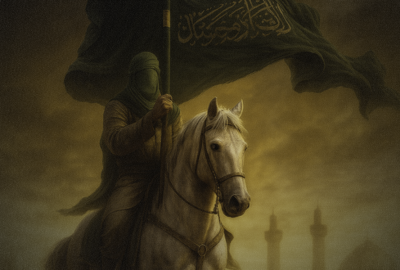Imam Hassan (as): Patience, Wisdom, and Devotion
Imam Hassan (as), the second Imam in Shia Islam, was the son of Imam Ali (as) and Lady Fatima (sa) and the first grandson of Prophet Muhammad (saww).
Revered for his intellect, patience, and unwavering commitment to protecting the religion, Imam Hassan’s (as) role in the legacy of the Ahlul Bayt (as) and his leadership of the Muslim community continue to offer timeless lessons.
Imam Hassan (as): Birth and Early Life
Born to Imam Ali (As) and Sayyida Fatima (sa) on the 15th of Ramadan, 3 AH (625 CE), Imam Hassan (as) was welcomed into the world not only by his noble parents but also by his grandfather, Prophet Muhammad (saww), who named him. According to hadith, his name was chosen by divine command.
Imam Hassan (as) came to be known by many titles, including Sayyid Shabab Ahl al-Jannah (Master of the Youths of Paradise), Rayhanat Nabi Allah (The Flower of the Prophet of Allah), and Al-Sibt (The Grandson).
Raised in the household of The Prophet (saww), Imam Hassan (as) attended his gatherings from a young age and would return home to share the teachings with his mother, Lady Fatima (sa).
Life and Leadership
During the caliphate of Imam Ali (as), Imam Hassan (as) played a vital role in supporting his father. When believers pledged allegiance to Imam Ali (as), Imam Hassan (as) stood at the minbar at his father’s request and delivered a powerful speech.
He played a crucial role in key battles, including the Battle of Jamal, where he was sent to Kufa alongside Ammar ibn Yasir and Qays ibn Sa’d to gather support. In the Battle of Siffin, he was entrusted with delivering sermons and was later appointed to lead the right flank of the army alongside his brother, Imam Hussain (as).
Following the martyrdom of Imam Ali (as), Imam Hassan (as) became the leader of the Muslim community. However, he faced opposition from Mu’awiya, who sought to take control of the caliphate. Despite many pledging allegiance to him, divisions remained, particularly in Sham (Syria), where Mu’awiya’s influence was strong.
To prevent further bloodshed, Imam Hassan (as) signed a peace treaty with Mu’awiya, though Mu’awiya ultimately violated its conditions. Throughout these challenges, Imam Hasan remained steadfast, focusing on the intellectual, spiritual, and moral development of the Muslim ummah. He famously said: “Think, because thinking is the life of the heart of a man who sees and is the key to doors of wisdom.” [Musnad al-Imam al-Hasan (a), p. 718]
Imam Hassan (as) dedicated his life to worship, frequently praying at the Mosque of The Prophet (saww) in Medina and teaching those who sought knowledge.
Martyrdom and Everlasting Legacy
Imam Hassan (as) was poisoned and martyred in 50 AH (670 CE) in Medina. His life was a testament to patience, humility, and generosity.
The Prophet Muhammad (saww) is reported to have said: “He is the master of the youth of Paradise and the Proof of God upon the ummah … He who follows him is of me and he who disobeys him is not of me.” [Farāʾid al-samṭayn, vol. 2, p. 35]
At The Zahra Trust, we continue his legacy by providing aid, education, and support to those in need. To learn more about our work and how you can contribute, click here.










